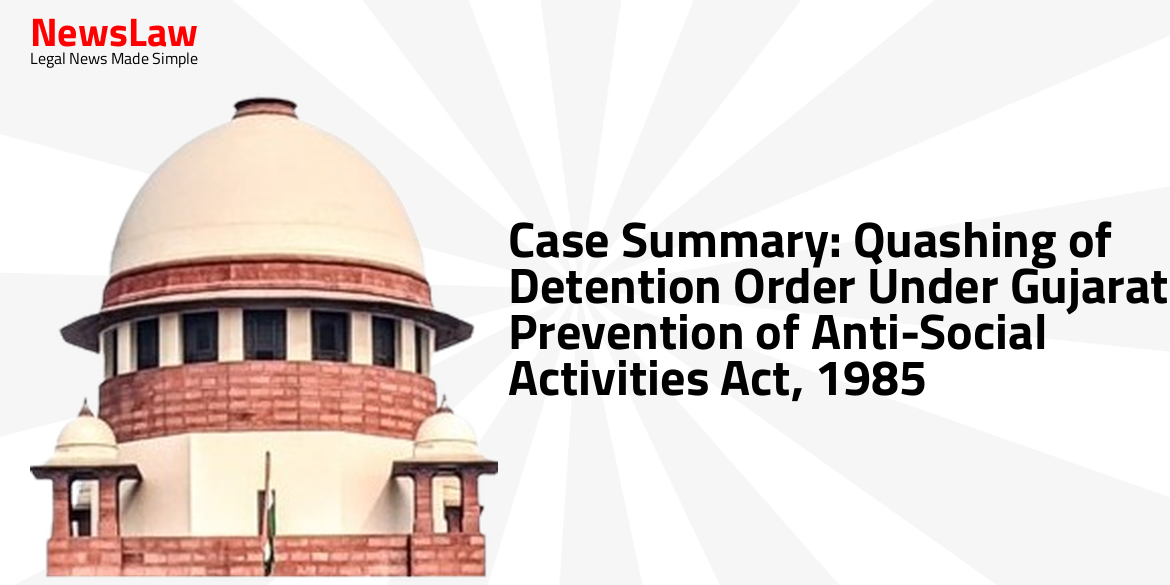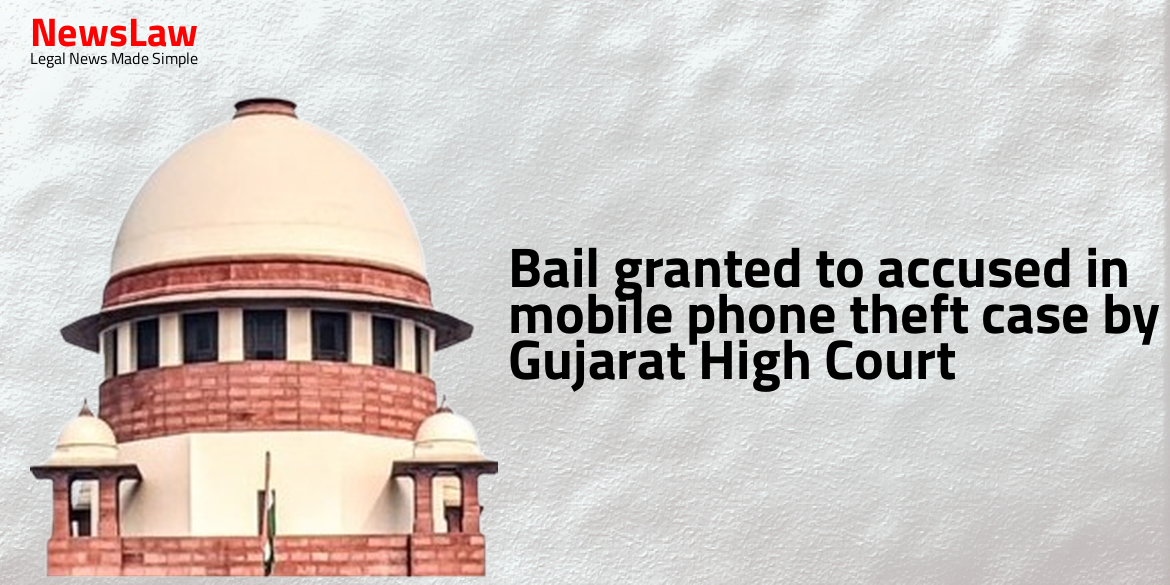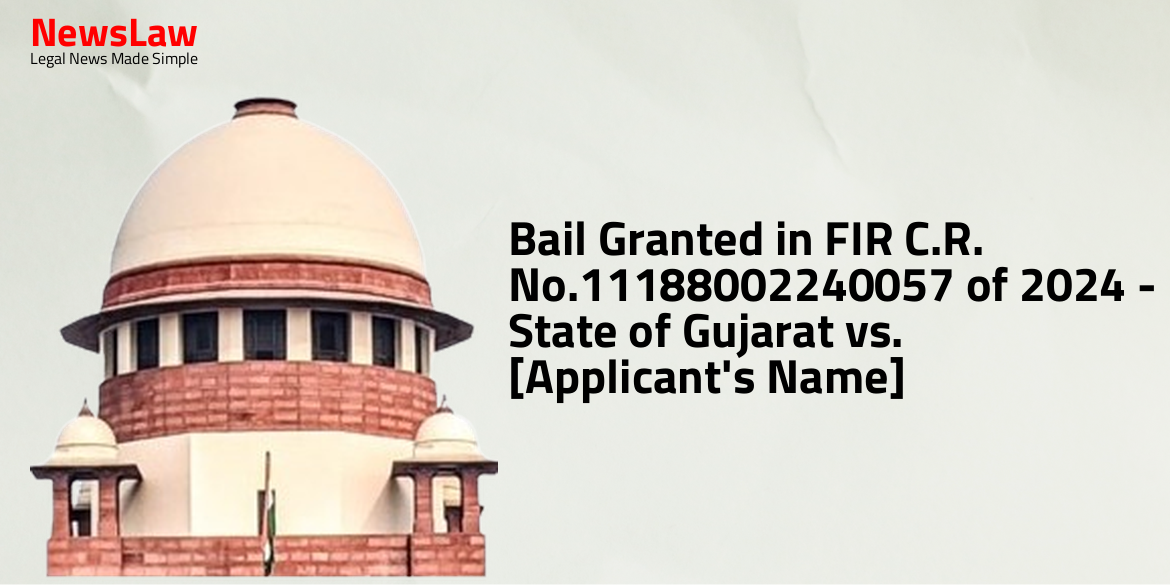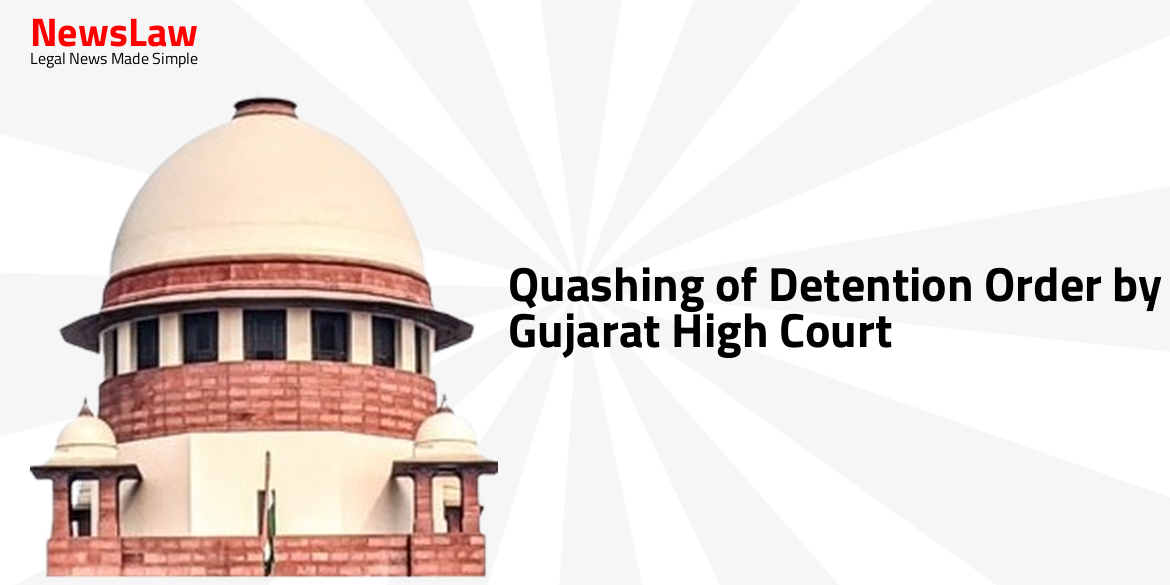In a landmark decision, the Gujarat High Court recently issued a judgment quashing a detention order under the Gujarat Prevention of Anti-Social Activities Act, 1985. The case involved a detenue challenging the legality of the order based on the grounds that the alleged activities did not pertain to public order but were minor breaches of law and order. The judgment emphasizes the importance of upholding human rights and ensuring that preventive detention is used judiciously in cases impacting public order.
Facts
- The present petition challenges the order of detention dated 25.1.2024 passed by the detaining authority under the Gujarat Prevention of Anti-Social Activities Act, 1985.
- The detaining authority invoked powers under Section 3(1) of the Act to detain the petitioner.
- The petitioner is considered a detenue as defined in Section 2(c) of the Act.
Arguments
- The detenue argues that the alleged illegal activities do not relate to public order but are merely breaches of law and order.
- There is insufficient evidence on record besides witness statements and FIR registrations to support the detention.
- The detaining authority did not consider that the detenue was already out on bail for all offenses, indicating that the activities do not pose a threat to public order.
- The detenue’s actions in criminal cases have not significantly disrupted societal norms or threatened the existence of normal life.
- The order of detention was based solely on the registration of three FIRs, which the detenue argues is not sufficient to justify detention under the law.
- Learned AGP for the State supported the detention order citing sufficient materials and evidences were found during investigation
- Detaining authority’s subjective satisfaction found to be invalid as alleged offences do not impact public order and can be handled by other penal laws
- Allegations against the detenue not relevant for Section 2(c) of the Act
- Absence of material proving detenue as a threat to public order or a menace to society
- Citing the need for specific material to prove disturbance to public order by the detenue
- Reliance on Apex Court case-laws to elucidate the legal position
Analysis
- Distinction between disturbance to ‘law and order’ and disturbance to ‘public order’ is crucial.
- Merely disturbing law and order does not warrant action under the Preventive Detention Act.
- Actions affecting public order come within the scope of the Act.
- Public order encompasses more serious and aggravated forms of disorder compared to minor breaches.
- Preventive detention aims to prevent specific offenses, but must be exercised cautiously.
- Freedom of individuals should not be curtailed unless extremely necessary for public order.
- Public order disturbances must affect the community at large, not just specific individuals.
- Routine and unjustified use of Preventive Detention Law in Telangana has been criticized.
- Detention orders must be evaluated for fairness and legality by appropriate authorities.
- The authorities must consider the constitutional safeguards of Articles 21 and 22 of the Constitution of India while issuing detention orders.
- Preventive detention orders have strict safeguards against abuse, originating from the colonial era.
- A District Magistrate can act under Rule 30(1)(b) to prevent subversion of public order, but not to maintain law and order under normal circumstances.
- Preventive detention cannot replace ordinary law enforcement and investigative functions of the authorities.
- Preventive detention for a year should not be used to keep a person indefinitely in custody without trial.
- Punishments for offences under specific laws should be awarded as per those laws, not through preventive detention.
- Preventive detention is meant to detain individuals to prevent future offences, not as a substitute for normal law enforcement and investigation.
- The order in question did not mention any application for the cancellation of bail made by State authorities.
- Personal liberty under Article 21 is highly valued and protected.
- Detaining authority must prove that the detention follows established legal procedures.
- Mere registration of FIRs does not necessarily relate to breach of public order.
- There must be relevant and cogent material to invoke powers under Section 3(1) of the Act.
- Article 22 should be viewed as an exception to Article 21.
Decision
- The present petition is allowed
- The impugned order of detention dated 25.1.2024 is quashed
- The petitioner, detenue, is ordered to be set at liberty forthwith
- Rule made absolute to the extent of setting aside the detention order
- Direct service is permitted only in rare and exceptional cases
Case Title: NARENDRA @ NANO BHARVAD S/O NONGHABHAI RATHOD Vs. STATE OF GUJARAT
Case Number: R/SCA/3111/2024



